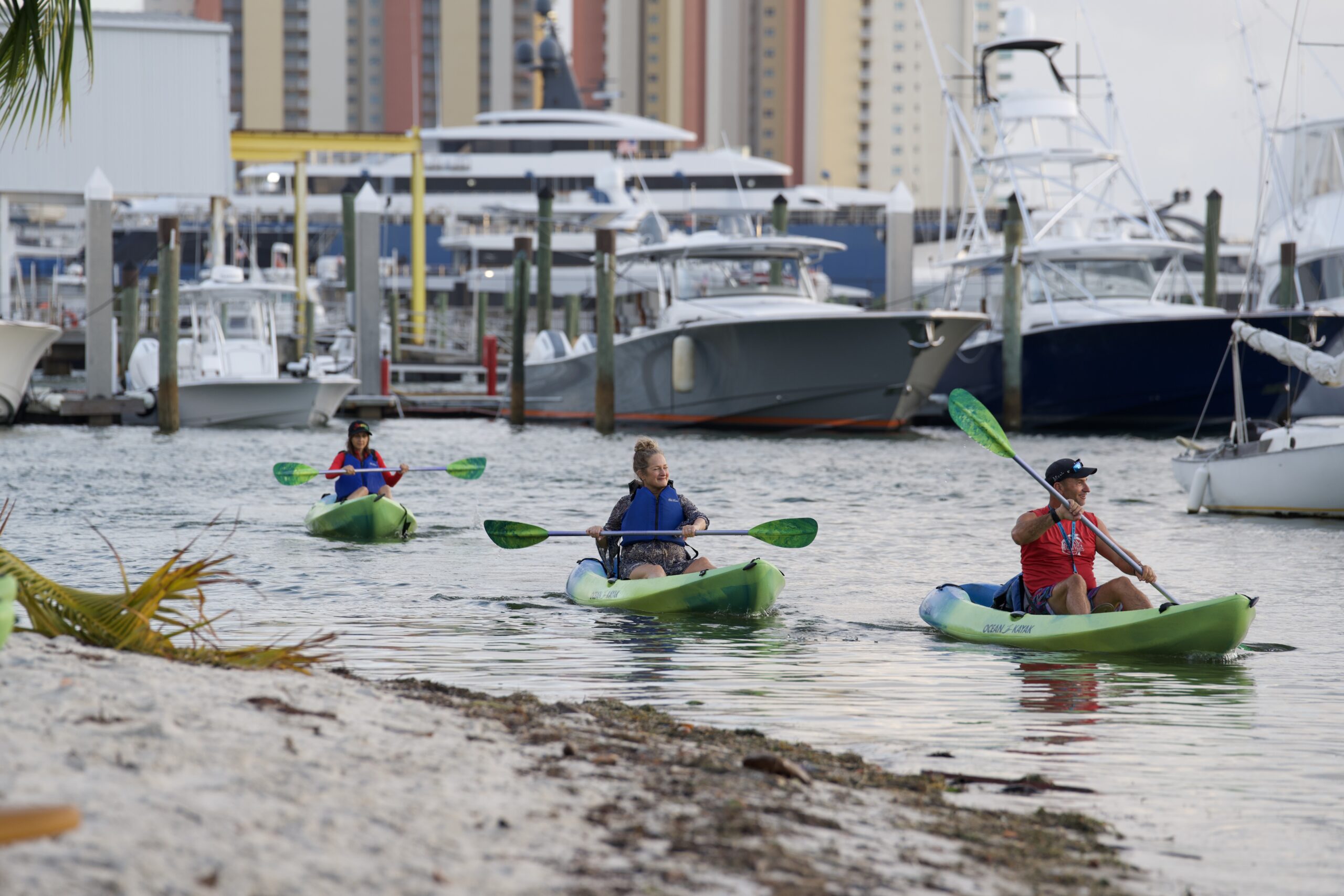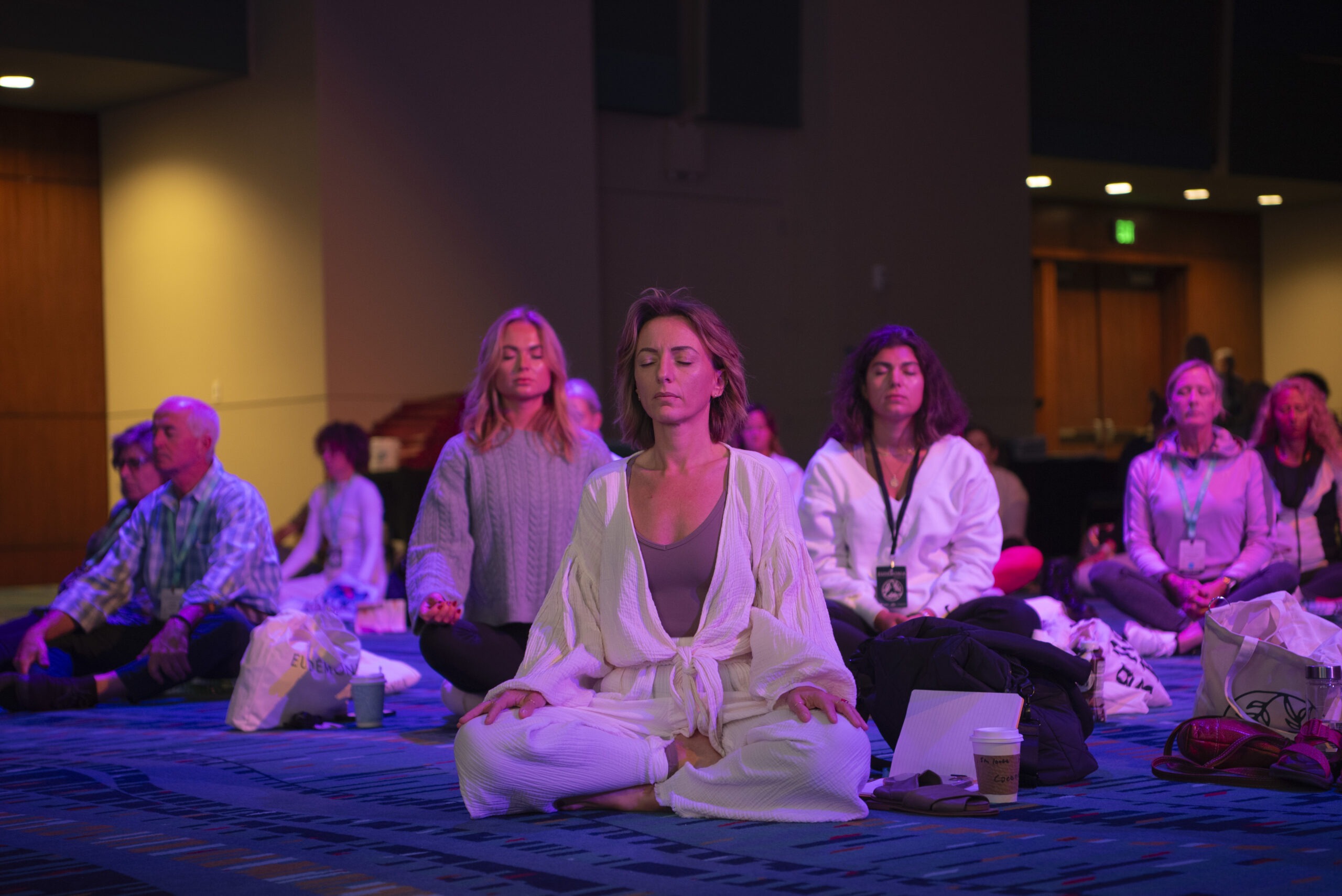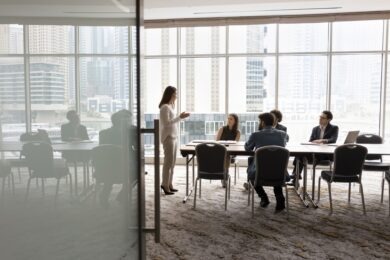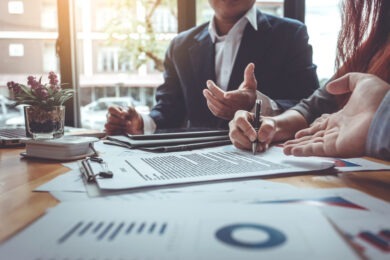Does your conference include cryotherapy sessions, nervous system resets, IV drips, bathroom stall stool identification charts, celebrity neuroscientist podcasters, the fitness star from “The Biggest Loser” and lots of heavy breathing? It could.
To see what that might look like from the perspective of a corporate meeting professional, I spent the weekend in The Palm Beaches, Florida, at the inaugural Eudemonia Summit at Hilton West Palm Beach and Palm Beach County Convention Center.

First, some background from the founder, who also happened to be one of the brains behind the Wanderlust festival movement, Sean Hoess. The conference takes its name from a Greek word meaning “human flourishing.” Hoess believes good health is a basic human right and best pursued in real life with others. His goal was to bring the top wellness thinkers (or as he refers to them, “the best explainers of biological science”) together to combat misinformation and apathy.
Read More: Why Meeting Planners Should Put Wellness First
That list included popular Stanford School of Medicine neuroscientist and “Huberman Lab” podcast host Andrew Huberman; Columbia University Professor of Medicine, Pulitzer Prize winner, medical AI visionary and oncologist Siddhartha Mukherjee; and influencer and yoga instructor Adriene Mishler.
Healthy Mind and Body Activations

The result was an interactive trade show filled with demonstrations fueled by in-app registration, mini-panels and healthy food choices. In the Treatment Village, Therasage offered cold plunges with bursts of ozone for immersions. The treatment was billed as a way to shock attendees out of their comfort zone into an almost psychedelic state so they can make perspective breakthroughs.
Outside, an army of SoulCycles spun in the tented Sky Room. Breakout sessions included “The Dancer’s Blueprint” with Kiari “Kiki” Kirk; “Unlocking Longevity” with Dr. Gabrielle Lyon, author of “Forever Strong”; “Better in Bed: How to Get the Best Sleep of Your Life” with clinical sleep specialist Michael Breus; and “Microdosing Psychedelics” with Paul Austin. A lot of onstage and hallway conversations focused on biohacking and performance optimization.
Helpfully, the restrooms at Palm Beach County Convention Center were fitted with Bathroom Classroom charts from probiotics company seed.com to help visitors self-diagnose their droppings. The activation was done with a wink and a discount code on products.
Days started with yoga, meditation, standup paddleboarding, breathing and High Intensity Internal Training (HIIT) classes from celebrated instructors. Kula Yoga Project founder Schuyler Grant joined with Mishler, who co-founded a yoga video subscription service called “Find What Feels Good,” for a conversation session on trauma-informed yoga practice. “If you are doing yoga right, it doesn’t just stay on the mat. It informs all of your interactions,” she said.
Healthy Debate
The main attraction upstairs on Day One was “An Unvarnished Debate: Ozempic, Mounjaro & Other GLPs.”
The debate around the medications featured passionate arguments on all sides, from fitness celebrity Jillian Michaels, who argued that people should just eat less and exercise more; UC San Francisco Professor of Physiology Zachary Knight, who presented evidence to show that it was a necessary tool to fight obesity; Tufts University cardiologist and nutrition expert Dr. Dariush Mozaffarian, who advocated for pairing the drug with lifestyle therapy; and certified nutritionist JJ Virgin, who suggested micro-dosing. The full house was left to consider what the personal and health policy implications could be in the future.
Read More: Mental Health at Meetings
Dr. Sharon Horesh Bergquist, host of “The Whole Health Cure” podcast, explained that nutrition is about more than health. “Our gut microbiome affects inflammation, cognitive ability and mood. We have to think about what we eat, who we eat with, how we eat and when we eat.”
Dan Harris, meditation advocate and author of “10% Happier,” struck a realistic note in his discussion about using anxiety to relieve anxiety. He sees meditation as a more holistic pursuit that goes beyond mindfulness to cultivating a warmer connection with the world.
“The goal is not to achieve a Buddha-level thought-free state, but to understand and accept our minds so we don’t act on the things that aren’t healthy. When you treat yourself more compassionately, that can start an upward spiral,” he said. “The number one variable in health is the quality of your relationships.”
What Meeting Professionals Can Learn from Eudemonia
 Those health enhancement theories are all well and good for people looking to live to 200, but what wisdom does this inaugural three-day weekend exploration into all things mind and body have for event builders tasked with negotiating contracts and managing the AV team? Here are my takeaways.
Those health enhancement theories are all well and good for people looking to live to 200, but what wisdom does this inaugural three-day weekend exploration into all things mind and body have for event builders tasked with negotiating contracts and managing the AV team? Here are my takeaways.
Read More: The Convergence of the Events and Wellness Industries: Why Event Planners Should Care
1. Focus on doing, not telling. From the treatment village to the HIIT class, people were moving and experiencing it for themselves. Even the expert sessions included interaction and conversations rather than lectures. The theme was “Engage & Emerge,” with a directive to become “the architect of your personal health and wellness.”
2. Partner Up. An event of this magnitude takes a village. Even as a first-time event, the conference drew on partners such as Rivian, which offered free rides around town. VoLoFoundation presented data about biomarkers and funded scholarships for students to attend the $1,499 experience (enhanced access was $4,499 per person and included concierge service, headliner meet and greets, reserved preferred seating and a dinner with organizers).
3. Emphasize the Benefits for Your Target Personas. It’s right there on the home page and in the signage around West Palm Beach. Eudemonia is for “seekers of positive change.” A multitude of options for movement, nourishment, mental optimization, restoration and connection were presented for exploration.
Even keynote neuroscientist Andrew Huberman shared more general advice about getting enough sleep, eating healthy food and introducing more movement as part of a framework for a healthy life.
“You need enough resources to live with a small buffer to calm anxiety: a fit, energetic body; a calm mind; and a home full of love.”




